Previous Inventor Showcases
The CCTS’s Translational Innovation Program, in partnership with the Corporate Engagement Office and Nationwide Children's Hospital's Office of Technology Commercialization, launched an in-person monthly Startup Inventor Showcase in January 2020. We pivoted our programming to a fully virtual panel series in June 2020 to highlight experts who are collaborating together to fight against COVID-19 on our front lines of innovation at an unprecedented pace.
The novel coronavirus, SARS-CoV-2, behind the global pandemic has killed over 400,000 people, with the toll rising by thousands every day. Combating the virus, which causes a highly contagious infection, COVID-19, has dramatically reshaped and galvanized the innovation ecosystem spurring an unprecedented rate of innovation. There is still plenty of work to do. At a conference on June 9, 2020, Tedros Adhanom Ghebreyesus, Director-General of the World Health, said, “More than six months into this pandemic, this is not the time for any country to take its foot off the pedal. This is the time for countries to continue to work hard.”
To inspire ongoing innovations and collaborations in the fight against COVID-19, the new Monthly Speaker Series aims to promote an entrepreneurial mindset among clinicians, faculty, senior leaders, students and staff of The Ohio State University and Nationwide Children’s Hospital. Since academic entrepreneurship is a team sport, the series will provide a forum for showcasing COVID-19 innovations as well as key resources in the innovation ecosystem.
Some of the goals of the new series are to:
- Showcase unprecedented innovations, collaborations and private-public partnerships developed in the fight against the pandemic
- Feature inventors from a variety of fields and their exemplary work at the intersection of academic achievement, science, technology, and business in the fight against COVID-19.
- Animate entrepreneurship as an exciting pathway and outcome of university research to address the most urgent and critical health challenge of our time.
- Demystify and nurture an entrepreneurial mindset among our clinicians, faculty and students
- Introduce and bring together representatives from the various support services, resources, funding mechanisms, training and guidance available to inventors
- Inspire new innovation teams to address various aspects of the pandemic from discovery to prevention to therapies.
The panel speaker series will be offered once a month and only through a virtual platform.
There will be time for Q&A following the panel discussions. All are welcome.
Questions? Please contact Smitha Sasindrin.
Eye Disease Innovation
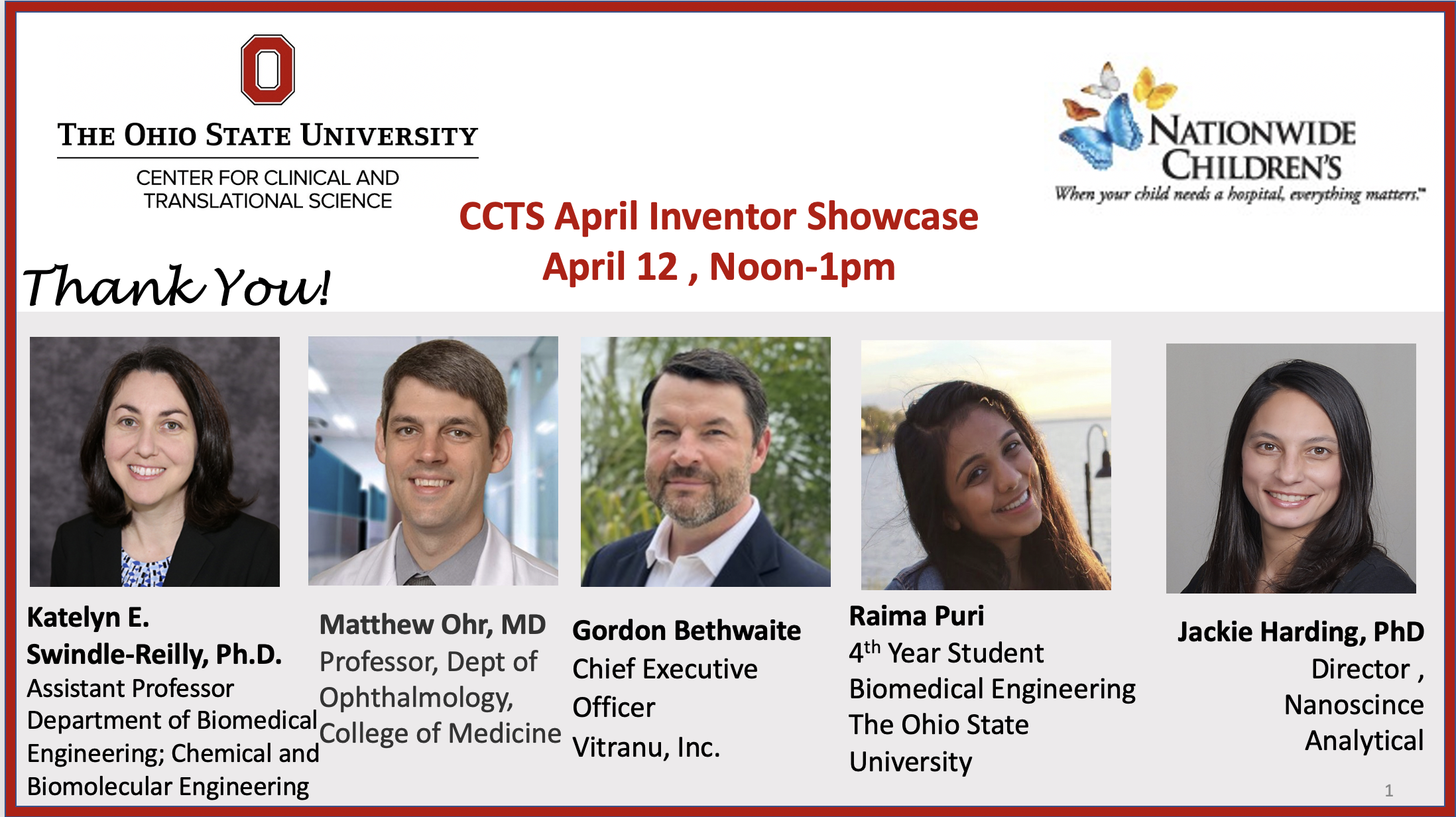
Join us at the Inventor Showcase on Wednesday, April 12 at noon to learn more about the team and their innovative treatment.
The global aging population is witnessing an alarming rise in the number of cases of eye disease, with retinal issues affecting the lives of over 250 million people worldwide. Patients with vision threatening conditions such as macular degeneration may receive injections in their eyes as often as every month to prevent blindness. While effective, maintaining these treatment regimens creates a huge burden for patients and their caregivers, as well as for healthcare providers.
Join us to learn to learn how a team including an ocular biomaterials researcher, Katelyn E. Swindle-Reilly, Ph.D. and a vitreoretinal surgeon, Matthew Ohr, MD are developing technology to significantly reduce the treatment burden. All are invited.
Welcome Address by Kevin Taylor, Sr. Associate Vice President, Technology Commercialization, Office of Innovation and Economic Development (OIED).

When: April 12, 2023, noon - 1 p.m. EST
Where: Online (Zoom Webinar)
President's Buckeye Accelerator
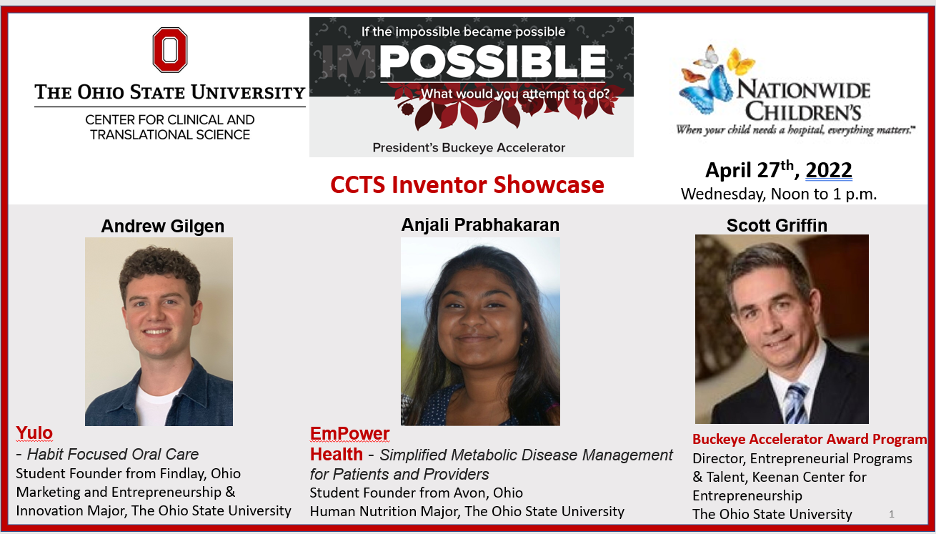
Join us at the April Inventor Showcase on Wednesday, April 27 at 12 noon to be inspired and to learn more about the innovation journey and entrepreneurial pursuits of two undergraduate students, who are finalists of the brand-new Buckeye Accelerator Award program. The President’s Buckeye Accelerator supports Ohio State student business founders prepare to launch startups. The accelerator combines entrepreneurship skill building, mentorship, community building and funding with a structured process. Accelerator applicants will first complete a six-week “Boost Camp” from January to March 2022. Six student founders from the Boost Camp will be selected for the year-long accelerator and awarded $50,000 to advance their startup concepts.
Date: April 27, 2022, 12:00 PM - 1:00 PM
April 2022 Featured Innovation Resource
University President Kristina Johnson’s Buckeye Accelerator Award Program
– Scott Griffin , Director, Entrepreneurial Programs and Talent
Keenan Center for Entrepreneurship
April 2022 Featured Speakers
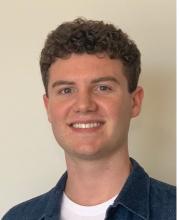
Andrew Gilgen
Andrew Gilgen is the founder of Yulo and an entrepreneur from Findlay, Ohio. He is a third-year undergraduate student studying Marketing and Entrepreneurship & Innovation at The Ohio State University. Andrew learned firsthand that our oral health plays an important role in our overall health and wellness when he was diagnosed with an autoimmune disorder, which can be triggered by poor oral hygiene. For him, his daily oral care routine is deeper than fresh breath and clean teeth, and he had to build good habits to stay healthy. After seeing the shocking statistics that 220 million Americans don’t brush and floss on a consistent basis and oral care products contribute to more than 50 million tons of plastic waste each year, he knew there was an opportunity to create change in a fairly stagnant industry. He believes since the toothbrush and floss are separate products, people don’t automatically associate their use together, which leads them to stay accustomed to their bad habits. The lack of innovation in this space is contributing to the rise of health problems and plastic waste all over the world. Yulocare is a family of sustainable oral care products that are designed to be used together and enable people to build good habits. The products include an oral care essentials kit, toothpaste chews, and mouthwash drops. The kit features a reusable handle with brushing, flossing and tongue scraper attachments that seamlessly connect and reduce plastic waste by 80%. He believes offering complete care in a single product will promote the use of all cleaning methods and make it easier to build a full routine that supports great habits. Yulo is currently a top 10 finalist in the President’s Buckeye Accelerator program. To learn more about Yulo, go to https://yulocare.com/ or follow @yulocare on social media. You can reach Andrew on LinkedIn .
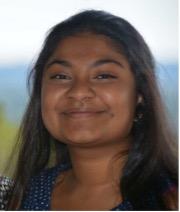
Anjali Prabhakaran
Anjali Prabhakaran is a senior Eminence Fellow and Human Nutrition Student from Avon, Ohio. At two months old, Anjali was diagnosed with a metabolic liver condition called Glycogen Storage Disease (GSD). Her experiences living with a chronic illness instilled in her a deep regard for improving human health and the patient experience. In October of last year, she noticed how difficult it was for her to track her food intake, activity levels, and blood glucose values in a consistent manner. These are all incredibly important values to record and understand when dealing with metabolic illnesses like GSD, a rare genetic condition, or diabetes, which affects over ten percent of the U.S. adult population. It was through grappling with this issue that EmPower Health came to be. EmPower Health is a metabolic disease management platform that allows patients to track their health data and understand how their lifestyle impacts their metabolic health through AI-driven feedback. Furthermore, EmPower Health will allow patients to share all their data with their physician, enabling physicians to make more informed clinical decisions, and allow patients to connect with a robust patient support network to share disease management advice. Currently, EmPower Health is one of ten finalists in the President's Buckeye Accelerator program. Anjali can be reached at prabhakaran.12@osu.edu
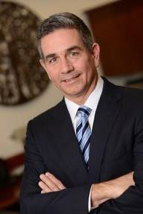
Scott Griffin joined The Ohio State University July of 2021 and is currently the Director of Entrepreneurial Programs. Scott Griffin joined us from LC Capital Partners where he served as Chief Operation Officer and Executive Vice President. Griffin’s primary responsibilities included strategy, land development, acquisition, and new business development. Griffin brings three decades of experience in starting, managing, and growing businesses across a variety of industries nationally and globally, with a proven track record for building high-performing teams. Griffin spent 11 years at Greif, Inc., a worldwide leader in industrial packaging products and services, in numerous executive leadership roles including Chief Sustainability Officer, Vice President, Communications, and Investor Relations. Griffin spent 14 years at Dow Chemical holding global marketing and business leadership roles and 4 years at Chemical Abstracts Service (CAS), a division of the American Chemical Society. Griffin teaches courses on New Product Development and Innovation at The Ohio State University's Fisher Graduate School of Business. He also served on the Board of Directors for several non-profit institutions, including Ohio State Parks and Columbus State Community College. Griffin is a patent holder and has led the successful commercialization of several new products. Examples include the Earthminded Rain Station and the social venture PackH20 that was awarded the 2013 Smithsonian Cooper Hewitt’s People’s Design Award.
Griffin received his undergraduate degree from The Ohio State University in 1987 and his MBA from Xavier University in 1992.
Innovative Therapies for Macular Degeneration - Preserving vision, reducing injections
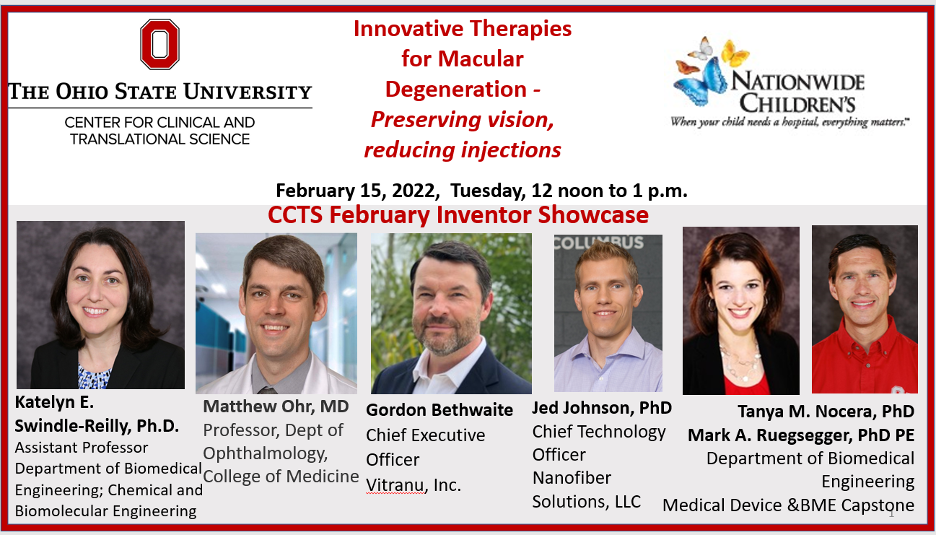
The global aging population is witnessing an alarming rise in the number of cases of eye disease, with retinal issues affecting the lives of over 250 million people worldwide. Patients with vision threatening conditions such as macular degeneration may receive injections in their eyes as often as every month to prevent blindness. While effective, maintaining these treatment regimens creates a huge burden for patients and their caregivers, as well as for healthcare providers.
Join us at the February Inventor Showcase on Tuesday, February 15 at 12 noon to learn to learn how a team including an ocular biomaterials researcher and a vitreoretinal surgeon, both from The Ohio State University, are developing technology to significantly reduce this treatment burden by providing delivery of therapeutics from a tunable extended release capsule.
More Information About Vitranu [external link]
Date: February 15, 2021, 12:00 PM - 1:00 PM
February 2022 Featured Speakers
Katelyn E. Swindle-Reilly, Ph.D.
Assistant Professor
Department of Biomedical Engineering
Department of Chemical and Biomolecular Engineering
Department of Ophthalmology and Visual Sciences, Courtesy
The Ohio State University
Chief Technology Officer, Vitranu, Inc.
Matthew Ohr, MD
Professor, Department of Ophthalmology & Visual Sciences, College of Medicine
Director, Retina Division, Havener Eye Institute |
Chief Medical Officer, Vitranu, Inc.
Gordon Bethwaite
Chief Executive Officer
Vitranu, Inc.
February 2022 Featured Innovation Resources
Nanofiber Solutions, LLC – Jed Johnson, PhD
BME Medical Device Graduate Course – Tanya M. Nocera, PhD
BME Capstone Course – Mark A. Ruegsegger, PhD PE
Speaker Bios
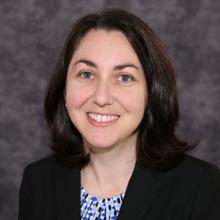
Katelyn Swindle-Reilly, Ph.D.
Dr. Swindle-Reilly is an Assistant Professor in the Department of Biomedical Engineering and William G. Lowrie Department of Chemical and Biomolecular Engineering, with a courtesy appointment in Ophthalmology and Visual Sciences at The Ohio State University. Dr. Swindle-Reilly developed 4 FDA approved wound care products for Rochal Industries prior to joining the faculty at Ohio State. Using her engineering training and industry experience, her lab focuses on researching and developing polymeric biomaterials and drug delivery systems for use in ocular applications. In 2020, 4 of her technologies were licensed by startup company Vitranu. Dr. Swindle-Reilly serves as Chief Technology Officer of Vitranu [external link], with the goal of bringing new implants to market to treat vitreoretinal diseases. She is interested in entrepreneurial minded learning (EML) and increasing the representation of women in STEM and entrepreneurialism. Dr. Swindle-Reilly received her B.S. in Chemical Engineering from Georgia Institute of Technology and M.S. and Ph.D. in Chemical Engineering from Washington University in St. Louis. She is a recipient of the Ohio Lions Eye Research Foundation Lois Hagelberger-Huebner Young Investigator Award and was named an Emerging Vision Scientist by the National Alliance for Eye and Vision Research. You can connect with Dr. Swindle-Reilly on LinkedIn [external link] or by email reilly.198@osu.edu [email]
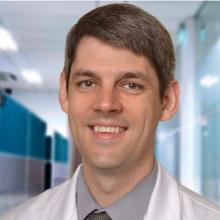
Matthew Ohr, MD [external link]
Dr. Matthew Ohr is a Professor in the Department of Ophthalmology at The Ohio State University College of Medicine. He’s also the Director of Retina Division, specializing in vitreoretinal and corneal diseases, managing many potentially blinding eye conditions at The Ohio State University Havener Eye Institute. Dr. Ohr is an expert on treating age-related macular degeneration (AMD), a leading cause of vision loss in those over 60 years of age. Dr. Ohr is the Chief Medical Officer of Vitranu. Dr. Ohr received his medical degree from Wright State University School of Medicine and completed his residency in Ophthalmology from The Ohio State University. Additional specialty training includes the Cornea and External Disease fellowship from The Ohio State University and Retinal Fellowship from Cleveland Clinic. You can connect with Dr. Matthew Ohr on LinkedIn [external link] or email Matthew.Ohr@osumc.edu [external link]
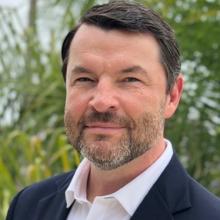
Gordon Bethwaite [external link]
Gordon Bethwaite is the Chief Executive Officer of Vitranu, Inc. [external link] Gordon has worked in eye care for over 20 years, with senior management roles in both early commercial stage start-ups and global organizations. From his early career working for Carl Zeiss Meditec in their Ophthalmic Diagnostics division, and through a series of progressively more senior roles in both the UK and the US, Gordon has developed deep knowledge of the eye care market. He has worked on several gold-standard ophthalmic technologies, and recently participated in a successful exit with Tear Film Innovations (acquired by Alcon). Gordon can be reached on LinkedIn [external link] or GBethwaite@vitranu.com [email]
Using Innovative Technology to Combat Burnout and Build Individual Resilience

The Translational Innovation Program of the Center for Clinical and Translational Science launched the CCTS Inventor Showcase in October as a monthly virtual series to highlight and celebrate inventors who are translating their innovations through the commercialization pathway. Developing resilience is critical now, more than ever, for overall health, wellbeing, and to face challenges. On Tuesday, January 18 at 12 noon, a team of inventors led by Kenneth Yeager, PhD, LISW, will be sharing about an innovative technology to combat burnout and build individual resilience. All are invited to the special showcase with a welcome address by Dr. Peter Mohler.
Featured Campus Resources:
CSE Capstone Course for Software Engineering – Julia Armstrong, BS- ECE, M.Ed., PPM, CSM
Center for Medical and Engineering Innovation - David M. Eckmann, PhD, MD
January 2022 Featured Speakers
Kenneth R. Yeager PhD, LISW-S, LICDC
Professor, Clinical
Director The Ohio State University STAR Program Department of Psychiatry
The David E. Schuller, Professor for Patient Compassion
Morgan Koth, F.M.H.C., C.F.P.
C.E.O./Founder of Accentus Health
Functional Medicine Health Coach
Certified Financial Planner
Speaker Bios
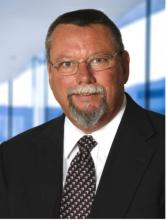
Kenneth Yeager, Ph.D., LISW-S, LICDC
Dr. Yeager is a Professor at the Department of Psychiatry and Director of the Ohio State University STAR Program and The David E. Schuller, Professor for Patient Compassion. Dr. Yeager has worked with those experiencing a crisis or who, in some form, have been traumatized throughout his career. Early on, he worked with healthcare and other professionals who had developed an addictive disorder and were seeking long-term addiction treatment. In this work, he became acutely aware that along with their addiction, the overwhelming majority experienced a concurrent mental distress that was not being addressed. These experiences, along with others, led him to work on the STAR program at The Ohio State University for those dealing with stress and trauma. Moving forward, starting in 2020, he has taken the knowledge, skill, and resources conceived from the STAR program and incorporated them into a mobile app and platform with the help of Morgan Koth, CEO and Founder of Accentus Health here in Columbus. Currently, there are two products, STAR Support for organizations and their employees to manage stress; and Wellness U for Colleges and Universities to help students and stakeholders better manage the stress and anxiety prevalent on campuses. Learn more about the STAR app and Platform at www.accentushealth.com. You can connect with Dr. Yeager on LinkedIn
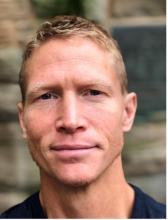
Morgan Koth, F.M.H.C., C.F.P.
Morgan Koth, F.M.H.C., C.F.P. is a Functional Medicine Health Coach and a Certified Financial Planner and is C.E.O./Founder of Accentus Health, a mental health mobile app & platform software company. Morgan has created and launched multiple new technologies from conception to the final client acquisition phase. His latest work incorporates S.T.A.R. & Wellness U mobile applications and software in collaboration with Dr. Ken Yeager from The Ohio State University. You can connect with Morgan on LinkedIn
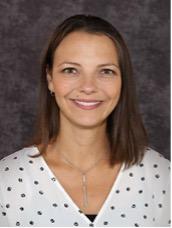
Julia Armstrong, BS- ECE, M.Ed., PPM, CSM
Julia Armstrong is the Director of the OHI/O Informal Learning Program. Armstrong has grown the OHI/O Informal Learning Program from a few events to two dozen, now serving over 1,600 students annually, including several K12 outreach events. In addition, Armstrong teaches the CSE Capstone Course for Software Engineering and coordinates all of the industry sponsored projects for each semester. She combines engineering (BS ECE), public teaching of gifted education (M.Ed. Talent Development) and industry experience (PMP, CSM) to grow the offerings and strength of the program and build rapport with industry partners. She uses her diverse interests and skills to bridge the gap between curricular education and skills of the working professional. In 2018, Armstrong was part of a multi-disciplinary team from Ohio State to receive a 3-year NSF award for Advancing Informal STEM Learning. In 2020, Armstrong was named as one of the first KEEN Engineering Unleashed Faculty Fellows. Her grant funded the pilot of a new electronics course for CSE majors, focused on application and industry connections. Armstrong can be reached at armstrong.798@osu.edu [email].
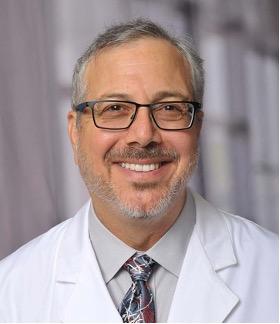
Dr. Eckmann received his BS in bioengineering from the University of California San Diego (UCSD) and his PhD in bioengineering and MD from Northwestern University. He joined the faculty at The Ohio State University after 23 years at the University of Pennsylvania where he held the Horatio C. Wood Endowed Chair as tenured professor of anesthesiology and critical care and professor of bioengineering. He has more than 25 years of continuous funding from NIH, NSF, Department of Defense, NASA, the Office of Naval Research, private foundations and industry supporting his research focusing on the interfacial biofluid dynamics of vascular gas embolism, targeted drug delivery, thin film surface grafting for biomaterial biocompatibility, drug elution and antimicrobial protection, and the interrelationship between cell mechanics and cellular bioenergetics and mitochondrial function. He has served a principal investigator of an NIH T32 in perioperative medicine and is a member of the Foundation for Anesthesia Education and Research Academy of Research Mentors. He has directed undergraduate and graduate courses in bioengineering and holds patents in biotechnology. Dr. Eckmann is American Board of Anesthesiology certified with expertise in cardiopulmonary physiology, anesthesia for bariatric surgery and airway management. He practices clinically at the Ohio State Wexner Medical Center. He can be reached at david.eckmann@osumc.edu [email].
SAVE THE DATE: February 2022 Inventor Showcase will be held on February 15, 2022 at 12 noon
Developing a Stroke Therapeutic- A Lesson in Persistence

Blood clot formation, which results in acute ischemic stroke (AIS) affects ~15 million worldwide each year. AIS occurs when blood flow through a brain artery is blocked by a clot leading to damage or death of brain cells. AIS starts suddenly, worsening rapidly so to treat an ischemic stroke, doctors must quickly restore blood flow to your brain to prevent serious complications to speech, cognition, and motor function. Join us on December 16 at noon to hear from Dr. Shahid Nimjee, MD, PhD, a neurosurgeon at The Ohio State University Wexner Medical Center about a potential breakthrough treatment which can rapidly and efficiently lyse arterial clots.
Recombinant tissue plasminogen activator (rtPA) is the only clot-busting drug available to treat patients with AIS. Unfortunately, patients treated with rtPA can re-occlude an open vessel, not effectively bust up the clot, and in a significant number of patients, bleed into their brain from getting the drug. If they do bleed it is fatal in almost half of patients because there is no way to reverse the drug. The new drug can open a blood clot in the brain much more effectively than rtPA in pre-clinical models. A second drug can turn off the first one off within 2 minutes as a reversal agent to provide a critical measure of safety currently unavailable for patients. The clot-busting drug DTRI-031 is currently in Phase I clinical trials.
Dr. Nimjee’s presentation on “Developing a Stroke Therapeutic – A Lesson in Persistence” will be followed by presentations on technology commercialization support provided to inventors by Rev1 Ventures and university licensing officers.
Date: December 16, 2021, 12:00 PM - 1:00 PM
December 2021 Featured Speakers
Shahid M. Nimjee, MD, PhD, FAANS, FAHA
Associate Professor of Neurosurgery
The Ohio State University Medical Center
Wayne Embree, MS
Executive Vice President, Investments & Venture Acceleration
Rev1 Ventures
Francis “Frank” Norris
Senior Licensing Manager
Office of Innovation & Economic Development, The Ohio State University
Speaker Bios
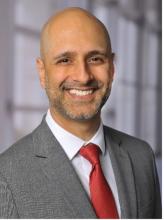
Shahid Nimjee, MD, PhD is an Associate Professor at The Ohio State University Wexner Medical Center (OSUWMC). He is a dual-trained endovascular and open vascular neurosurgeon. He is also the Surgical Director of the Comprehensive Stroke Center at OSUWMC. Dr. Nimjee leads a foundational and translational research laboratory at OSUWMC that is focused on evaluating anti-vWF aptamers and their antidotes to treat thromboembolic stroke. In January 2019, he co-founded Basking Biosciences, a clinical-stage biotechnology company focused on developing the first reversible antithrombotic drug to treat stroke and other acute thrombotic disorders. He currently serves as the Company’s Chief Medical Officer, responsible for leading preclinical research activities, and designing the clinical trial plan for DTRI-031 and DTRI-025. Dr. Nimjee received his undergrad degree from Yale and his MD and PhD degrees from Duke. He also completed his Neurosurgery residency and vascular fellowship at Duke before being recruited to the OSUWMC in 2014. Dr. Nimjee can be reached at Shahid.Nimjee@osumc.edu [email].
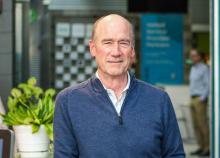
Wayne Embree is an experienced seed-stage investor with a track record of fueling startups with guidance and venture capital. He’s been involved in over 200 investments – 100 of which were spinouts from research institutions – including sitting on over 50 boards and taking more than 60 businesses through exits. Throughout his career, he has maintained his passion and enthusiasm for helping entrepreneurs change the world. Wayne has a BS in Natural Sciences from Western Oregon and an MS in Urban Planning from the University of Oregon. Wayne is the Executive Vice President, Investments & Venture Acceleration at Rev1 Ventures [external link]. Connect with Wayne on LinkedIn [external link].
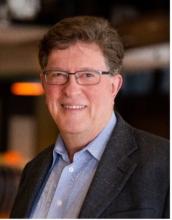
Frank Norris has been a university technology manager for 16 years. He held a senior manager position at the University of Utah from 2005-2013. In 2013 he was recruited into a similar position at Ohio State. During this 16 year period, Frank has assisted in the founding of 34 start-up companies based on technologies under his management.
Prior to his involvement with university faculty and their inventions, Frank worked in intellectual property management and business development in the medical device industry. He is a co-inventor on 7 U.S. patents and 17 pending patent applications (“continuations”). His training is in physics and mathematics. Frank is a Senior Licensing Manager at the Office of Innovation and Economic Development, Technology Commercialization at The Ohio State University. Frank can be reached norris.641@osu.edu [email].
Hear Me Read – A Novel Digital Storybook Intervention Platform for Children with Hearing Loss
Nearly 34 million children globally have disabling hearing loss, facing challenges in developing spoken language and literacy. Expert therapy is needed to achieve these goals, and no digital therapy interventions designed for deaf/hard of hearing (D/HH) children are available. Our November inventors have created a novel mobile app “Hear Me Read” designed to use digital stories as audio and video tools in therapy, in a platform that enhances family engagement for D/HH children. Therapists can select stories based on reading level, auditory and grammatical features, then assign them to parents with embedded individualized prompts and therapeutic goals. Parents can create personalized narrations of a book, explore vocabulary and the embedded therapist prompts and tasks. This innovative team is made up of pediatric hearing loss professionals (speech and language therapists, ENT surgeon), a parent of a D/HH child, and a software designer, all of whom incorporated design elements tailored to the specific learning needs of these children. Join us at our November showcase to learn how “Hear Me Read” was developed to help at-risk children use storybooks in a single app to achieve multiple therapy goals over time!
November 2021 Inventor Team
Nationwide Children’s Hospital
- Prashant S. Malhotra, MD, FAAP, Associate Professor, Pediatric Otolaryngology
- Janelle Huefner, MA, CCC-SLP, A/AOGPE, Speech Language Pathology
- John Luna, MFA, Interactive Media Developer, IT Research & Innovation
PLUS
- Anand Satyapriya, MD, Senior Partner, Midwest Physician Anesthesia Services, Inc.
Featured Campus Resources
- Office of Technology Commercialization (OTC), Nationwide Children’s Hospital
- Technology Development Fund – Matthew McFarland, RPh, PhD, Vice President of Commercialization and Industry Relations & Director of OTC
- Overview of Support for Inventors & Entrepreneurs – Andrew Corris, PharmD, JD, Licensing Associate
- Voucher Program, Center for Clinical & Translational Science, The Ohio State University – Sean Collins, MS, Research Consultant
Inventor Bios
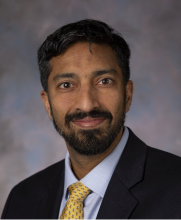
Prashant Solanki Malhotra, MD, FAAP Since 2013, Prashant Solanki Malhotra, MD, FAAP has been a surgeon in the Department of Otolaryngology and the Hearing and Implant Program at Nationwide Children’s Hospital and an Associate Professor in the Department of Otolaryngology – Head and Neck Surgery at The Ohio State University College of Medicine. He has helped build this program into a national leader in pediatric cochlear implantation and ear surgery. Dr. Malhotra received his medical degree from Case Western Reserve University, Cleveland, Ohio. He completed his surgical residency in Otolaryngology- Head and Neck Surgery at Thomas Jefferson University Hospital in Philadelphia, Pennsylvania and spent an additional year as a fellow in Pediatric Otolaryngology at Lucile Packard Children’s Hospital at Stanford University in California. Prior to moving to Columbus, Dr. Malhotra was faculty at The Cleveland Clinic Foundation. Dr. Malhotra’s academic and clinical interests primarily focus on problems relating to pediatric hearing loss and pediatric cochlear implantation. He passionately advocates for the needs of deaf/hard of hearing children at the state and national level. He is an engaged instructor of ENT and Pediatric resident and fellow trainees and medical students. Dr. Malhotra’s current innovation focus is in developing digital applications to help deaf/hard of hearing children with language and literacy goals. He can be reached at Prashant.Malhotra.nationwidechildrens.org.
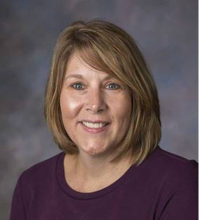
Janelle Huefner, MA CCC-SLP, A/AOGPE, is a Board Certified Speech-Language Pathologist in the Department of Speech Language Pathology at Nationwide Children’s Hospital and is Orton-Gillingham-trained at the Academy Associate Level. She received her master’s degree in Communicative Disorders and Sciences in California and has been a practicing pediatric speech language pathologist for 22 years in hospitals, home-based early intervention programs, educational settings including private, public and charter schools as well as private practice. She joined the Hearing Program and Dyslexia Team in 2018 and is clinically focused on spoken language and literacy development with patients who have hearing loss and patients with dyslexia. Janelle has a passion for serving young children diagnosed with hearing loss and students facing language-based academic and behavioral difficulties from hearing/listening, speaking, reading and/or written expression challenges. Janelle’s current innovation focus is in providing clinical expertise in the development of digital applications to help deaf/hard of hearing children with language and literacy goals and expanding the application for those who also have dyslexia. She can be reached at Janelle.huefner@nationwidechildren’s.org [email].
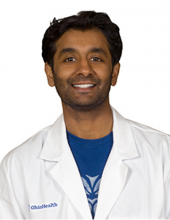
Anand Satyapriya, MD is an anesthesiologist and intensivist at Midwest Physician Anesthesia Services in Columbus, Ohio. Dr. Satyapriya attended medical school at Case Western Reserve University in Cleveland, Ohio and completed residency at Cleveland Clinic Foundation and then an Intensive Care Unit Fellowship at Cleveland Clinic Foundation as well. He stayed on as ICU staff at Cleveland Clinic until his wife wife, also an anesthesiologist/intensivist @ OSU and currently ECMO director graduated from training. Dr. Satyapriya grew up in Columbus and moved from Cleveland to Columbus to raise their family and further their careers. They have 3 young children (10, 7 and 2). Since joining MPAS, his focus has been on quality improvement – heading the Continuous Process Improvement Team and Clinical Guidance Councils at Ohio Health. He has also pursued administrative roles such as ICU director, President/CEO of MPAS and now serving as a board member. Dr. Satyapriya’s interest in developing this technology is secondary to his family’s journey through the hearing impairment world. This app is being developed with Dr. Prashant Malhotra, Shana Lucius, Janelle Huefner and John Luna. Its aim is to help hearing impaired children navigate the path of speech therapy in a more efficient, evidence- based manner with digital story books. He can be reached at anand.satyapriya@mpasohio.com [email].
Billing Intelligently Through Software
October 2021 Inventor Team
Department of Internal Medicine, Division of Hospital Medicine:
- George Onderko DO, Assistant Professor & Hospitalist
- John Bertrand MD, Assistant Professor & Hospitalist
- Manoj Ramachandran MD, Assistant Professor & Hospitalist
Featured Campus Resources
- Technology Commercialization, Office of Innovation and Economic Development – Stewart N Davis, Senior Licensing Officer
- Keenan Center for Entrepreneurship – Nelson Law, Director of Venture Development
Inventor Bios
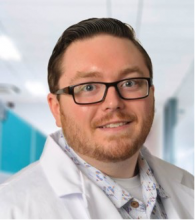
Dr. George Onderko DO is a nocturnist at the Ohio State University Wexner Medical Center. He attended medical school at Ohio University before completing his residency in internal medicine at York Hospital in York, Pennsylvania. He, along with his wife Dr. Svetlana Onderko, started their careers as nocturnists together in 2009. With the birth of their son, Phoenix, George began work at Ohio State where he has been for over 6 years continuing to work nights. He has focused on quality improvement projects and cross service collaborations during his time as a physician. In 2020 he was awarded the “Physician Collaborator Award.” At Ohio State he has been able to pursue his interests in inventorship sparking off two mobile app developments with a third in the works along with other non-software inventions. His first app is being developed in collaboration with Drs Bertrand and Ramachandran. It aims to educate on proper professional billing while reducing billing errors and revenue loss. Dr. George Onderko can be reached at George.Onderko@osumc.edu [email]
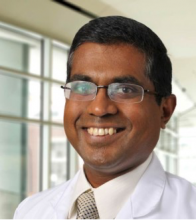
Manoj V Ramachandran, MD is an Assistant Professor of Internal Medicine at the Ohio State University School of Medicine. He has been a hospitalist for 12 years. He completed his medical school at Trivandrum Medical College, Kerala, India. After completion of medical school, he completed three years of training in biophysics from All India Institute of Medical Science, New Delhi, India during which time he worked on in-silico structure-based drug design for a variety of targets including type 2 diabetes, multi-drug-resistant tuberculosis, and novel pain killers. He is also Physician Advisor for Documentation Improvement at the Ohio State University Wexner Medical Center. He volunteers his time as the Associate Editor for the Journal of Medical Case Reports. After his Internal Medicine training from the Saint Vincent Hospital, Worcester, MA, he found a new passion in mentoring new physicians about their professional billing. With his 8 years of experience in coaching hospitalists in their billing, he joined Drs. Onderko and Bertrand in developing a new app for billing and coding for physicians. Their group expanded their work to create a suite of apps that standardize perioperative medical management and Stroke care in the hospital. Their work is aimed at simplifying the physician workflow and at the same time, improve patient outcomes. He can be reached at ramachandran.76@osu.edu [email]
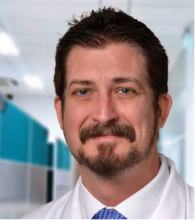
John Bertrand completed his undergraduate degree in computer science and professionally developed a variety of software solutions as a consulting programmer/analyst for seven years before entering Wayne State University School of Medicine in Detroit, MI. After completing internal medicine residency at Good Samaritan Hospital in Cincinnati Ohio, he joined the Division of Hospital Medicine as a Clinical Assistant Professor of Internal Medicine at The Ohio State University in 2015. In addition to direct patient care, he is an active member of the Division of Hospital Medicine Clinical Informatics Committee with projects that include supporting division operations and improving provider efficiency. He can be reached at john.bertrand@osumc.edu [email]
Handheld Ultrasound Diagnosis of COVID-19

Turnaround times and accessibility remains an issue with existing COVID-19 diagnostic tests and there is a need for better, faster COVID-19 diagnostic tools for the masses. Register to learn how an Ohio State civil, environmental and geodetic engineering professor, Professor Alper Yilmaz, PhD student Shehan Perera and other team members combined ultrasound scans of the lung with deep learning technology to identify COVID-19. The handheld diagnostic test takes less than 10 minutes, including scanning and sanitation time.
June Inventor Team
Alper Yilmaz, Ph.D, Professor, Geo-Informatics (Change layout)
Michael Karnes, MS, Graduate Research Associate
Shehan R Perera MS, Graduate Research Associate
Srikar Adhikari, MD, MS, Professor & Emergency Ultrasound Chief, University of Arizona
Featured Campus Resources
- Civil Environmental & Geodetic Engineering - Allison MacKay, PhD, BCCEM
- Photogrammetric Computer Vision Lab - Alper Yilmaz, Ph.D
Inventor Bios
Alper Yilmaz, PhD
Alper Yilmaz, PhD is Professor of Geo-Informatics with appointment in Civil Environmental and Geodetic Engineering Department at The Ohio State University. He is a senior member of the U.S. National Academy of Inventors, senior member of IEEE and an active member of ASPRS, ISPRS and IAPR professional societies. Dr. Yilmaz is currently chairing the Working Group 5 on Dynamic Scene Understanding of ISPRS Technical Commission II. He is serving as Editor-In-Chief for the Photogrammetric Engineering and Remote Sensing Journal. During his leadership of the PE&RS journal, the impact factor has increased to its highest since its first volume in 1934. In 2019, PE&RS was ranked 19th most downloaded journal among all 11,000 titles on Ingenta Connect Platform. He has served as Associate Editor for the Computer Vision and Image Understanding Journal between 2014 and 2016 and the Machine Vision and Applications Journal between 2006 and 2011. Among other honors, he was awarded the Lumley Research Award (OSU) in 2012, and the Lumley Interdisciplinary Research Award (OSU) in 2015, honorable mention for the Masao Horiba Award (Japan) in 2016, Presidential citation in 2019 from the American Society for Photogrammetry and Remote Sensing, and selected as finalist for the Innovator of the Year Award at The Ohio State University in 2020. He has advised 22 PhD students to completion on topics ranging from object tracking, 3D scene recovery, machine learning, and data mining who have found position in prominent academic institutions, industry and government. He can be reached at yilmaz.15@osu.edu.
Michael Karnes
Michael Karnes, a PhD candidate in the Photogrammetric Computer Vision (PCV) lab, has a diverse history of device development with a Mechanical Engineering foundation. While in undergrad, Michael found a passion for medical devices during his internship with Ethicon Endo-Surgery (EES), where he helped in the development in the Harmonic Scalpel and the Sedasys automated anesthesia machine. For his master's degree, he developed and demonstrated an electrical impedance imaging system for quantitative tumor margin assessment. Currently, he is working with the Air Force Research Laboratory (AFRL) in developing machine learning algorithms for video processing. When the pandemic hit, Michael saw a clear crossover between the image analysis he was doing for AFRL and a need for rapid Covid-19 diagnostics. As a result, in collaboration with his team, they have developed an image recognition algorithm for point-of-care Covid-19 ultrasound diagnostics.
Shehan Perera
Shehan Perera is a PhD student in Electical and Computer Engineering advised by Dr. Alper Yilmaz. Currently he is a Graduate Research Associate working on medical imaging mainly with Ultra Sound/Computed Tomography modalities and visual navigation/localization for GPS denied UAV systems. He has prior experience as a Machine Learning intern at a defense contracting firm analyzing large scale satellite imagery. Most recently he has worked with Sandia National Lab's Applied Machine Intelligence team on unstructured physics data as a research and development intern.
From Breast Reconstruction to COVID-19 Face Masks

Since the breakout of COVID-19, face masks are not only in critical short supply, but have major shortcomings related to the materials the masks are made of. It is therefore of utmost importance to produce not only more but also better masks. The currently available cloth face masks mitigate the possibility of spreading the virus but they neither protect the wearer nor are they comfortable, absorbing exhaled moisture. N95 masks do protect the wearer but are not very comfortable, impede breathing, and users experience problems such as eyeglasses fogging due to the increase in temperature and humidity between the face and the mask. In addition, fake N95 masks are infiltrating the market increasing risks and giving a false sense of security to the wearer. Come join us on March 16 to learn how the Puskas group are harnessing 20 years of innovation in breast reconstruction to develop a new rubbery face mask that combines comfort with function, branded as the “Buckeye Mask”.
March Inventor Team
- Judit E. Puskas, Ph. D., P.Eng.
- Distinguished Professor of CFAES in Polymer Science
- Enikő Krisch
- Research Associate
- Kristóf Molnar
- Research Associate
- Susan Louscher
- Foresight Innovation Partners LLC
Featured Campus Resources
- Jonathan Song, PhD
- Center for Cancer Engineering
- Scott A. Shearer, PhD, PE
- Food, Agricultural & Biological Engineering
Inventor Bios
Judit E. Puskas, Ph. D., P. Eng, Distinguished Professor
AIMBE, IUPAC and NAI Fellow
External member, Hungarian Academy of Sciences
Co-inventor of the polymer coating on the Taxus drug-eluting coronary stent, implanted in over 10 million people
Dr. Puskas received a PhD in plastics and rubber technology in 1985, and an M. E. Sc in organic and biochemical engineering in 1977, from the Technical University of Budapest, Hungary. Her advisors were Professors Ferenc Tüdös and Tibor Kelen of Hungary, and Professor Joseph P. Kennedy at the University of Akron, Ohio, USA, in the framework of collaboration between the National Science Foundation of the USA and the Hungarian Academy of Sciences. She started her academic career in 1996. Before that she was involved in polymer research and development in the microelectronic, paint and rubber industries. Her present interests include the integration of breast reconstruction and cancer research, green polymer chemistry, biomimetic processes and biomaterials, living/controlled polymerizations, polymerization mechanisms and kinetics, thermoplastic elastomers and polymer structure/property relationships, and probing the polymer-bio interface. Puskas has been published in more than 430 publications, including technical reports, is an inventor or co-inventor of 33 U.S. patents and applications, and has been Chair or organizer of a number of international conferences. Puskas has been awarded her first NIH grant (the first ever in the Department of Polymer Science) in 2010, and has had 7 NSF Grants since 2005, including a Special Creativity Extension in 2013. She is the recipient of several awards, including the 1999 PEO (Professional Engineers of Ontario, Canada) Medal in Research &Development, a 2000 Premier's Research Excellence Award, the 2004 Mercator Professorship Award from the DFG (German Research Foundation) and the Arpad Medal from the Arpad Academy of the American Hungarian Association Awards. Professor Puskas is the winner of the 2017 Charles Goodyear Medal, the most prestigious award given by the Rubber Division of the American Chemical Society. She joined the Faculty of the Department of Food, Agricultural and Biological Engineering (FABE) at the Ohio State University as a tenured Full Professor in January 1, 2019, and became a Distinguished Professor in 2020. She may be reached at puskas.19@osu.edu.
Novel Indoor Monitoring Techniques for SARS-CoV-2

The novel coronavirus, SARS-CoV-2, is commonly spread indoors, where it is shed from its human host into the surrounding environment. This feature has facilitated transmission, but may also allow for convenient monitoring for COVID-19 outbreaks. This environmental surveillance will remain a critical tool to monitor high-risk populations, even after widespread vaccination.
Learn how an interdisciplinary team from Ohio State and University of Notre Dame have developed a convenient and novel indoor monitoring technique that uses vacuumed dust. Bulk dust was collected from rooms of individuals isolated after a COVID-19 positive test. The dust was identified as the most convenient and reliable sampling method due to both RNA concentration levels and the percentages of samples that were positive when compared to surface swabs and a passive sampler. This method could complement wastewater monitoring efforts by providing a more convenient sample collection protocol by using vacuumed dust that is already being collected as part of normal cleaning practices.
February Inventor Team
- Karen Dannemiller, PhD
Assistant Professor, College of Engineering, College of Public Health & Sustainability Institute
- Natalie Hull, PhD
Assistant Professor, College of Engineering, Sustainability Institute
- Nicole Renninger, BS
Graduate Research Assistant, College of Engineering
- Nicholas Nastasi, BS
Graduate Research Assistant, Environmental Science
Featured Campus Resources
- Wilbur Ouma, PhD
Ohio Supercomputer Center (OSC)
- Elena Irwin, PhD
Inventor Bios
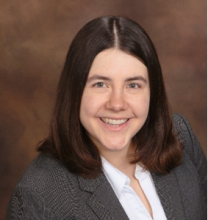
Dr. Karen Dannemiller’s unique background combines both engineering and public health to tackle difficult questions with regards to exposures in the built environment. She graduated with honors in Chemical and Biochemical Engineering from Brown University and earned her Ph.D. at Yale University in Chemical and Environmental Engineering. Dr. Dannemiller has a joint appointment between Civil, Environmental and Geodetic Engineering, and Environmental Health Sciences, with a courtesy appointment in Microbiology, Dr. Dannemiller is also a core faculty member in the Sustainability Institute at The Ohio State University. She was the recipient of the Denman Distinguished Research Mentor Award, the IMR Early Career Innovator of the Year, the Buckeye Engineering Women in Executive Leadership (BEWEL) Leadership in Innovation Award, the Lumley Engineering Research Award, and the NSF CAREER award.
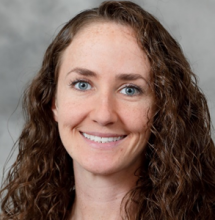
Dr. Natalie Hull's dedication to safe water was ingrained by her Central Appalachian heritage, where creeks and streams were polluted by inadequate sewage management and irresponsible natural resource extraction. For her BS in Civil Engineering, Natalie researched slow sand filters for microbial water treatment in developing countries. This undergraduate research experience captivated Natalie by the intersection of environmental microbiology and engineering.
For her MS in Civil Engineering at the University of Colorado Boulder, she investigated mammalian toxicity of engineered nanoparticles. As a post-graduate professional researcher at the University of Colorado Boulder in the Molecular, Cellular, and Developmental Biology department and in the Civil, Environmental, and Architectural Engineering department, she explored microbial ecology and toxicity of water in built environments including tap water and hydraulic fracturing wastewater. For her PhD in Environmental Engineering at the University of Colorado Boulder, she studied molecular mechanisms of water disinfection by ultraviolet light and sustainable applications for rural and small water systems.
Natalie is building on her convergent engineering and microbiology background, and graduate certificates in both teaching and mentoring, to inspire and educate students to sustainably engineer safe water for the health and enjoyment of current and future generations. She leads the Water TEAM (Treatment Engineering and Microbiome) research group in applying emerging molecular biology tools, novel sensors, big data analyses, and optimized treatment technologies to better understand and control microbiomes in natural and engineered waters to protect public and environmental health.
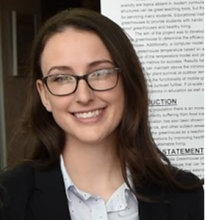
Nicole Renninger is a second year MS student in Environmental Engineering at the Ohio State University. She currently works as a graduate student researcher in the Indoor Environmental Quality Laboratory on a DAGSI fellowship working with the Air Force Research Laboratories. Nicole received her BS in Biological Engineering at the Ohio State University in 2019 with Honors Research Distinction. Her interests and research focuses on characterizing and improving microbial measurement related to the indoor environment to find new associations with human health outcomes and materials degradation.
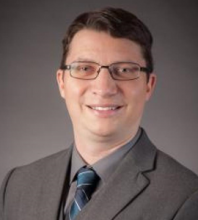
Nicholas Nastasi received his Associates of Science as an Honors Scholar Graduate from Columbus State Community College. In 2018, he graduated from The Ohio State University with a B.S and Honors Research Distinction in Environmental Engineering. Currently, he is pursuing a graduate degree at The Ohio State University in the Environmental Science Graduate Program with a specialization in Environmental Public Health.
Previous research experience includes geochemical and microbial analyses of hydraulic fracturing fluids. He has also investigated how fungal growth and allergen production in carpet and house dust is affected by relative humidity. Currently, his research focuses on a collaboration with NASA to modeling microbial growth and communities from dust collected from the International Space Station. He is also working on how aerosolized viruses deposited on carpet and dust can persist in these materials.
Accelerated Mass Manufacturing of NP Swabs

We are currently in the middle of a third surge of the COVID-19 pandemic in the U.S.A. with tens of thousands of new cases reported daily nationwide. Around the world, close to 40.5 million people have contracted COVID-19 and more than 1.1 million have died, according to Johns Hopkins University’s most recent data. CDC projects up to 282,000 US COVID-19 deaths by December 5. Surprisingly, one of the biggest bottlenecks in the soaring demand for diagnoses has neither involved complex machines to detect genetic material nor molecular biology. It’s been a shortage of nasopharyngeal swabs for collecting samples. Join us on December 15th to learn how an Ohio State coalition of university scientists, engineers and manufacturers came together to share resources and expertise to combat this shortage in the state of Ohio. The 3D printed nasal pharyngeal swabs are meeting the dire demand for testing in Ohio.
December Inventor Team
Jay Sayre, PhD
- Assistant VP, Materials & Manufacturing Sustainability, Office of Research & Director, Institute for Materials Research
- Research Associate Professor, Materials Science and Engineering
Fonda Robinson, DMD, FACP
- Associate Dean, Clinic Administration and Patient Care, College of Dentistry
- Interim Chair, Division of Oral and Maxillofacial Radiology
- Associate Professor, Restorative and Prosthetic Dentistry, College of Dentistry
Seth Faith, PhD
- Strategic Alliance Officer, Infectious Diseases Institute
- Executive Director, Center of Microbiome Science
Nate Ames
- Executive Director, Center for Design and Manufacturing Excellence
- Adj. Assistant Professor, Design
- Adj. Research Associate Professor, Materials Science and Engineering
Featured Campus Resources
- Jay Sayre, PhD, Institute for Materials Research (IMR)
- Mary Hoffman-Pancake, NEW! Medical Modelling, Materials and Manufacturing Lab
- Seth Faith, PhD, NEW! Applied Microbiology Services Lab
Inventor Bios
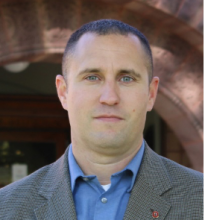
Nate Ames is the Executive Director for OSU’s Center for Design and Manufacturing (CDME). His role in CDME leverages his professional experiences as an entrepreneur, manager, and production engineer. Nate did both his undergraduate and graduate work at OSU in Welding Engineering. He spent the first five years of his professional career at Swagelok Company as a manufacturing engineering and later as a product development and research engineer. Following Swagelok, Nate spent 11 years at EWI where he held the roles of Engineering Manager for the Material Science group, Business Development Manager for the energy and chemical market segments and was the Director for a public-private center focused on advance fabrication technologies for the nuclear industry. He then moved into an entrepreneurial period where he launched several companies in different markets ranging from energy infrastructure, health products processing equipment and electronics. Nate sold the majority of his ventures prior to joining OSU. He joined the university specifically to help create CDME, largely based on the gaps he identified while doing product development and commercialization throughout his career.
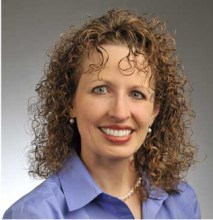
Dr. Fonda G. Robinson is the Associate Dean for Clinic Administration and Patient Care and an Associate Professor in the Division of Restorative and Prosthetic Dentistry, College of Dentistry at The Ohio State University. She received her B.S. in biology from the University of Kentucky (UK) and earned a Doctor of Dental Medicine (DMD) degree from the UK College of Dentistry. Dr. Robinson completed her residency training earning a certificate in Prosthodontics from the Dental College of Georgia (DCG) at Augusta University. Following her residency program, Dr. Robinson served on the faculty at DCG for several years before returning to Kentucky to practice dentistry. She was then recruited to the UK College of Dentistry’s faculty. While at the UK College of Dentistry, Dr. Robinson served as Division Chief of Prosthodontics, Division Chief of Restorative Dentistry, Assistant Dean for Pre-Doctoral Clinical Operations, and Associate Dean of Clinical Affairs. She is a Diplomate of the American Board of Prosthodontics. Dr. Robinson also served on the faculty at the Meharry Medical College School of Dentistry in Nashville, TN. She practices fixed implant prosthodontics in the College’s intramural dental practice. She blends her clinical and administrative interests with research/scholarly interests and has authored thirty-four peer-reviewed articles. Dr. Robinson can be reached at robinson.1490@osu.edu.
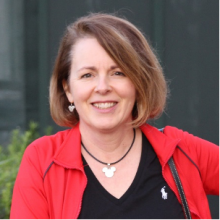
Julie Amling is the director of supply chain purchasing operations at OSU Wexner Medical Center. She earned her Master’s in Health Administration from OSU and her Bachelor’s from Butler University. In addition to her service at Wexner Medical Center, Julie has worked at Nationwide Children’s Hospital, Nationwide Children’s Research Institute, and at St. Francis Medical Center in Indianapolis. Julie has more than 25 years of experience in healthcare working in a variety of areas including strategic planning, process improvement, project management, women’s health, and communications and marketing. In addition, Julie has assisted with the start-up of three women-owned businesses and volunteered for 13 years as a Girl Scout Leader.
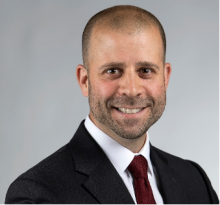
Dr. Seth A. Faith is currently the Executive Director for the Center of Microbiome Science and a Director of Strategic Alliances for the Infectious Diseases Institute at The Ohio State University. Dr. Faith has co-led the establishment of the Ohio State University Applied Microbiology Services Laboratory (AMSL), which is currently providing the on-campus COVID19 testing. He previously held positions as an assistant professor at North Carolina State University and as research leader in Biosecurity at Battelle Memorial Institute, a non-profit research organization.
Dr. Faith has led numerous industry and US government-sponsored research and development programs for next-generation sequencing (NGS) and genomics, producing the world’s first system for forensic NGS analysis, a Cloud-based bioinformatics platform, and an artificial intelligence method for identifying global environmental microbiomes Presently, Dr. Faith serves in advisory roles for committees that oversee the standards development in the US, including The Federal Bureau of Investigation (FBI) Scientific Working Group on DNA Analysis Methods (SWGDAM), the National Institute of Standards and Technology (NIST), and the American Academy of Forensic Sciences (AAFS) Standards Board (ASB).
He has a Ph.D. in Biomedical Science from Northeast Ohio Medical University and received specialized biodefense training as a postdoctoral fellow at the University of Pittsburgh Medical Center. Dr. Faith can be reached at faith.3@osu.edu Website: https://idi.osu.edu/ and https://u.osu.edu/coms/
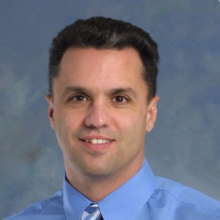
Dr. Jay Sayre is an Assistant Vice President in the Office of Research and the Director of Innovation for the Institute for Materials Research at The Ohio State University. He is also a Research Associate Professor in the Materials Science and Engineering department where his interdisciplinary research interests are based in innovation and translating science into products through applied research and polymer engineering science. Specifically, his focus is on polymers and composites, fuel cells, electrode structures, advanced threat armor, dynamic mechanical analysis, fracture analysis, and innovation models, tools, and practices. Prior to joining Ohio State, Dr. Sayre held the positions of Director of Advanced Materials and Internal Research and Development at Battelle Memorial Institute. He is an inventor of several commercialized technologies in the areas of fuel cells, impact barriers, and vehicle armor. He holds a PhD in Materials Engineering Science and a BS in Chemical Engineering from Virginia Tech, as well as a Master of Science in Polymer Engineering from the University of Tennessee. Dr. Sayre can be reached at: sayre.17@osu.edu and https://imr.osu.edu/
Constructing a COVID-19 Vaccine

Messenger RNA (mRNA)-based vaccine is one of the leading candidates for fighting against COVID-19. In our work, we systematically investigated the untranslated regions (UTRs) of mRNAs in order to enhance antigen production. Through a comprehensive analysis and engineering of UTRs, we identified the optimal UTR sequences, termed as NASAR, which significantly enhanced the production of SARS-CoV-2 antigens. The NASAR mRNA encoding SARS-CoV-2 antigens induced strong immune responses in mice. More importantly, this novel mRNA-based platform provide broad applicability to a wide variety of therapeutic applications.
October Inventor Team
- Chunxi Zeng, PhD, Pharmaceutics and Pharmacology, College of Pharmacy
- Yizhou Dong, PhD, Pharmaceutics and Pharmacology, College of Pharmacy
October Innovation Resource Team
- Paul Stoodley, PhD, Campus Microscopy and Imaging Facility
- Jeffrey Chalmers, PhD, Flow Cytometry Shared Resource
- Richard K. Wilson, PhD, Genomics Shared Resource
- Amanda Ewart Toland, PhD, FACMG, Genomics Shared Resource
SPEAKER BIOS:
Yizhou Dong is an Associate Professor in the Division of Pharmaceutics and Pharmacology, College of Pharmacy at The Ohio State University. He received his B.S. in pharmaceutical sciences from Peking University, Health Science Center and M.S. in organic chemistry from Shanghai Institute of Organic Chemistry. In 2009, he received his Ph.D. degree in pharmaceutical sciences from the University of North Carolina at Chapel Hill (UNC-CH) under the supervision of Professor K.-H. Lee. From 2010 to 2014, he was a postdoctoral fellow in the laboratory of Professors Robert Langer and Daniel Anderson at Harvard Medical School and Massachusetts Institute of Technology.
His research focuses on the design and development of biotechnology platforms for the treatment of genetic disorders, infectious diseases, and cancers. Dr. Dong has authored over seventy papers and patents. Several of his inventions have been licensed and are currently under development as drug candidates for clinical trials. Dr. Dong is the recipient of Early Career Investigator Award from the Bayer Hemophilia Awards Program, Young Innovator in Cellular and Molecular Bioengineering from the Biomedical Engineering Society, Maximizing Investigators’ Research Award from the National Institute of General Medical Sciences (NIGMS), and Ohio State Early Career Innovator of the Year. Dr. Dong can be reached at: dong.525@osu.edu. Website: https://donglab.engineering.osu.edu/
Chunxi Zeng is currently a Research Scientist at the Department of Pathology, College of Medicine at The Ohio State University. His B.S. degree in Biotechnology was received from Sichuan University. In 2016, he obtained his Ph.D. degree in Molecular and Cellular Biology from Ohio University mentored by Professor Jennifer Hines. His Ph.D. research focused on bacterial RNA-targeted drug discovery. From 2016 to 2020, he was a Postdoctoral Research Associate in the laboratory of Associate Professor Yizhou Dong in the Division of Pharmaceutics and Pharmacology, College of Pharmacy at The Ohio State University. His postdoc research focused on the engineering of novel mRNA sequences for diverse translational applications.
A Breath Test For COVID-19

In March, the Novel Coronavirus Disease, COVID-19, was declared a pandemic by the World Health Organization (WHO). Without innate immunity to the novel virus and with the lack of therapeutic means to treat it, the only way to contain the spread of this disease further is through early diagnosis. For many infected individuals the disease remains asymptomatic- yet the disease carriers can potentially transmit COVID-19 and infect more of the population. This work proves that there is a viable pathway towards the early and rapid detection of infection COVID-19 caused by the novel beta coronavirus SARS-CoV-2. We demonstrate here a disruptive approach to infectious disease diagnosis and to the detection of COVID-19 specifically. This approach involves sampling the breath of humans for specific gaseous biomarkers of the disease and identifying a breath-print -signature of active COVID-19 infection.
September COVID-19 Inventor Team
- Perena Gouma, PhD, Endowed Chair in Ceramic Engineering
- Andrew Bowman, MS, DVM, PhD, Veterinary Preventive Medicine
- Matthew Exline MD, Pulmonary Disease & Critical Care Medicine
September Innovation Resource Team
- Caroline Crisafulli, Ohio State ADVANCE
- Michelle Bright, Clinical Trials Management Organization
- Ryan M. Haley, MBOE, Ambulatory Services, Wexner Medical Center
Speaker Bios
P. Gouma
Dr. Pelagia-Irene (Perena) Gouma is currently theEdward Orton Jr., Chair in Ceramic Engineering at The Ohio State University. Her previous appointment was with the Institute of Predictive Performance Methodologies (IPPM) and with the MSE Dept. (tenured Full Professor) at the University of Texas-Arlington. Before that, for 16 years, she was a Professor at the State University of New York in Stony Brook, and the Founder and Director of the Center for Nanomaterials and Sensor Development (CNSD).
She holds a B.Sc. degree in Applied Physics from the Aristotelian University in Thessaloniki Greece; a M.Sc. (Eng) degree in Materials from the University of Liverpool, UK and a M.Phil in Organizational Management from the same Institution. She received her Ph.D. in Materials Science and Engineering from The University of Birmingham in the UK. Dr. Gouma’s research activities involve the synthesis and characterization of nanomaterials for bio-/chemical sensors and biotechnology. Dr. Gouma has pioneered the development of personalized artificial olfaction systems, in particular the single exhale and diagnostic breath analyzer. Dr. Gouma has established novel and highly successful programs on nanomedicine, with emphasis on the development of non-invasive breath and skin-based diagnostic tools.
Other areas of her research include photocatalysts and sorbents for remediating water from petroleum hydrocarbon pollutants and self-supported photocatalytic blankets that float on water and produce energy from photochemical water splitting. She has been featured as an expert in nanomaterials, ceramics, sensors, and photocatalysts in numerous press releases (Science Nation, IOP, Science press, NPR, NBC news, Fox news, Fast Company, etc.). She has published over 140 peer-reviewed articles, 18 book chapters and editorials, and a monograph. She also holds 18 patents (both US and International).
She is a member of the National Academy of Inventors, she was a Fulbright Scholar to UNICAMP in Brazil, and she has received the prestigious Richard M. Fulrath award of The American Ceramic Society. She is a Fellow of The American Ceramic Society (2019). She was the sole Chair of the 2011 ISOEN Conference. Dr. Gouma can be reached at: gouma.2@osu.edu. Website: https://acrl.osu.edu
Rapid COVID-19 Diagnostic Testing

The number of confirmed new COVID-19 cases is expected to continue rising as more businesses reopen. A rapid point-of-care confirmatory diagnostic test is essential to help safely re-enter society. The current gold-standard molecular diagnostic assay, quantitative reverse transcriptase (RT)-PCR assay, although accurate, is labor intensive and time consuming. The time to results can range from 4 hours to several days. Thus, a major unmet need is a rapid, accurate, sensitive, and affordable COVID-19 confirmatory diagnostic test. Join our upcoming live webinar to learn how a team of inventors are attempting to develop a molecular COVID-19 diagnostic test that can not only be manufactured quickly but also generates results in less than 1 hour.
August COVID-19 Inventor Team
- Carlos E. Castro, PhD, Associate Professor, Mechanical & Aerospace Engineering
- Patrick D. Halley, MS, Mechanical & Aerospace Engineering
- Christopher R. Lucas, PhD, Mechanical & Aerospace Engineering
- Melika Shahhosseini, BS, PhD Candidate, Mechanical & Aerospace Engineering
August Innovation Resource Team
- Jan Weisenberger, PhD, Ohio State Office of Research
- Art Gooray, PhD, Ohio State Corporate Engagement Office, Faculty Alliances for Engineering
- Muyang Hu, Rev1 Ventures
Speaker Bios
Professor Castro received his Bachelor’s and Master’s degrees in Mechanical Engineering both from the Ohio State University and his PhD in Mechanical Engineering from the Massachusetts Institute of Technology. He was post-doctoral fellow at the Technische Universität München working in structural DNA nanotechnology. Dr. Castro joined OSU in 2011 as a faculty member and is currently an Associate Professor in the Department of Mechanical and Aerospace Engineering and a faculty member of the OSU Biophysics Graduate Program.
His research focuses on the self-assembly of DNA nanodevices for biophysical and biomedical applications. Dr. Castro’s laboratory has pioneered the use of engineering mechanics and design approaches for the development of DNA nanomachines with complex motion, dynamic behavior, and programmed stimulus response. A major goal of his current research is to develop nanodevices for measurement, manipulation, and drug delivery in biological systems. He has received honors including OSU research and teaching awards, an NSF CAREER award, an Alexander von Humboldt fellowship, and a Fulbright Research Scholar Award.
Patrick Halley is an Engineering Research Associate in the Nanoengineering and Biodesign Lab in the Mechanical and Aerospace Engineering at the Ohio State University. He received a B.S. and M.S in Chemical Engineering from Ohio State. Working for Battelle before returning to OSU to continue his previous research in the targeted delivery of anthracycline drugs in Acute Myeloid Leukemia, which along with Drs. Castro, Lucas and John Byrd, he received a patent for the design. Additionally, he developed a method to scale up fabrication of DNA origami nanostructures from basic research to pre-clinical amounts, using basic laboratory equipment. He specializes in work that combines design and engineering work with clinical applications.
Melika Shahhosseini is a 4th year Ph.D candidate in the Nanoengineering and Biodesign Lab in the Mechanical and Aerospace Engineering at the Ohio State University. She received her B.S in Mechanical Engineering from Sharif University of Technology, Iran. She joined Ohio State in Fall 2016 and has been working in the Nanoengineering and Biodesign Lab under the supervision of Dr. Carlos Castro since then. Her research is focused on using DNA origami structures to study cellular interactions and to manipulate cellular junctions. She was recently awarded the Pelotonia fellowship in early 2020 to study cell interactions with cancer biomarkers in ECM. She is skilled in the design and implementation of DNA nanodevices for biological applications.
Christopher Lucas completed his undergraduate studies in Biochemistry and his graduate work in the Integrated Biomedical Sciences Graduate Program at The Ohio State University. He conducted his PhD dissertation research in Molecular and Cellular Immunology in the laboratory of Dr. Virginia Sanders studying molecular mechanisms of antibody regulation by a B cell. He then engaged in Postdoctoral studies in the Nanoengineering and Biodesign Laboratory within the Department of Mechanical and Aerospace Engineering at The Ohio State University under the mentorship of Dr. Carlos Castro and in the Ohio State University Comprehensive Cancer Center under Dr. John Byrd, leading Hematologist and Distinguished University Professor.
He is currently appointed as a Research Scientist, under the direction of Drs. Castro and Byrd focusing on developing novel DNA origami nanostructures for biomedical applications including developing novel targeted drug delivery systems for leukemia and diagnostic bio-sensing devices. He aspires to become a leading researcher in nanomedicine and life sciences biotechnology entrepreneur.
Enhancing Innate COVID-19 Immunity
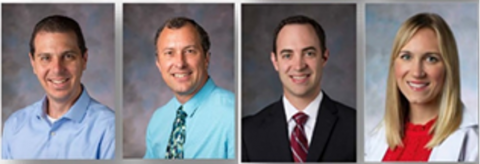
The race to find a cure for COVID-19 began on January 10, 2020 when the Chinese government released the genetic sequence of the virus – SARS-CoV-2 – responsible for the global pandemic of an extremely spreadable and potentially fatal disease. Researchers around the world began to build bits of the virus in their labs to develop therapies, with the aim of making us immune. Join us to learn how researchers at Nationwide Children’s Hospital developed a method for generating large numbers of clinical-grade Natural Killer (NK) cells for cancer therapy which has the potential to augment the innate immunity of high-risk patients with mild or moderate COVID-19 disease and to prevent progression to severe COVID-19 disease.
July COVID-19 Inventor Team
• Chris P. Ouellette, MD, Section of Infectious Diseases and Host Defense Program at Nationwide Children’s Hospital and Assistant professor of Pediatrics at The Ohio State University College of Medicine.
• Dean Anthony Lee, MD, PhD, Division of Hematology and Oncology at Nationwide Children’s Hospital and Professor of Pediatrics at The Ohio State University College of Medicine and the DiMarco Family Endowed Chair in Cell Based Therapy.
July Innovation Resource Team
- Nationwide Children’s Hospital Drug and Device Development Services: Kevin Bosse, PhD, RAC
- Nationwide Children’s Hospital Host Defense Program: Christopher P. Ouellette, MD
- Nationwide Children’s Hospital Cellular Therapy and Cancer Immunology Program: Margaret Lamb, MD
- OSU/NCH Campus GMP Facilities for Cell Therapy Manufacturing: Dean Lee, MD, PhD
SPEAKER BIOS:
Dr. Chris Ouelette
Dr. Ouellette is an Assistant Professor of Pediatrics in the Division of Infectious Diseases at Nationwide Children’s Hospital. He is a member of the Host Defense Program, a group of Infectious Disease physicians devoted to the management of infections in immunocompromised children. Dr. Ouellette’s clinical and research interests include management of infectious diseases in children, with an emphasis on the prevention, diagnosis, and treatment of infections in immunocompromised children. His primary research interest includes novel therapeutic approaches, in particular adoptive immunotherapies, for treatment of resistant or refractory viral infections in children.
Dr. Dean Anthony Lee
Dr. Lee is Professor of Pediatrics and DiMarco Family Endowed Chair in Cell Based Therapy at Nationwide Children's Hospital. He is the founding Director of the Cellular Therapy and Cancer Immunotherapy Program, a joint program between NCH and The Ohio State University James Cancer Hospital. Dr. Lee conducts clinical and translational research on natural killer (NK) cells and their potential for cancer immunotherapy.
His laboratory identified a crucial role for IL-21 and STAT3 signaling in NK cell function and proliferation, which has enabled a method for large-scale propagation of clinical-grade NK cells for adoptive transfer. NK cells expanded with this approach have been infused into adult and pediatric patients with leukemia, brain tumors, and solid tumors in investigator-initiated Phase I trials. Dr. Lee is chair of the Cellular Therapy Strategy Group for the Pediatric Blood and Marrow Transplant Consortium, member of the NIH Novel and Exceptional Technology and Research Advisory Committee and member of the Cell Therapy Steering Committee of the Children’s Oncology Group.
His work in cancer immunotherapy and cellular therapy has been supported by NIH, DOD and numerous foundation research grants, and has led to over 100 peer-reviewed publications, patents, and commercial licenses. Dr. Lee practices clinically in the area of bone marrow transplantation, with a particular interest in haplotransplantation and cellular therapy.
Increasing Ventilator Capacity

SARS-CoV-2 can cause severe lung damage leading to respiratory failure. Estimates so far show that about 6% of patients affected with COVID-19 get critically sick, and about a quarter of those may need respiratory assistance via a ventilator. Mechanical ventilation can be a life-saving intervention resulting in improved patient outcomes; however, the current surge in demand has led to a worldwide shortage. Join us to learn how experts at Ohio State joined forces to develop a safe, effective and low-cost way of doubling ventilator capacity.
June COVID-19 Inventor Team
- Syed Husain, MD, FACS, FASCRS, Associate Professor of Surgery-Clinical, Department of Surgery
- Walter Hansen, MS, Mechanical/Systems, CDME
- Daniel Vazquez, MD, Founder, CREATE & Surgery faculty, Cleveland Clinic
June Innovation Resource Team
- Mary Hoffman Pancake, MS, PMP, Program Manager, Center for Design and Manufacturing Excellence.
- Sheryl Pfeil, MD, Medical Director, The Clinical Skills Education and Assessment Center (CSEAC)
- Jay Read, The Clinical Skills Education and Assessment Center (CSEAC)
- Amanda Haney MS, APRN-CNP, Associate Director, CREATE: Center for Research, Education, and Transdisciplinary Exploration
- Cindy Byrd DNP, ACNP-BC, Director APP Transition to Practice Fellow & Advance Practice Manager Critical Care
Questions? Please contact Dr. Tanya Mathew, CCTS.
SPEAKER BIOS:
Dr. Syed Husain
Dr. Syed Husain is a Colorectal Surgeon who serves as an Associate Professor of Surgery at The Ohio State University Wexner Medical Center. He earned his medical degree from Dow Medical College Karachi, Pakistan. After completion of General Surgery residency at Harlem Hospital Center in New York, Dr. Husain went on to complete a Fellowship in Minimally Invasive Surgery at University of Rochester, NY followed by a Fellowship in Colon and Rectal Surgery at Brown University, RI.
Dr. Husain is Board Certified in General Surgery and Colon and Rectal Surgery, and is a member of several professional organizations. He is the recipient of several teaching and achievement awards and research grants. His clinical interests include evaluation and application of new surgical techniques and technology to the field of colorectal surgery with special focus towards utilization of minimally invasive platform for the treatment of colorectal disease. He has extensively studied clinical outcomes in surgery and has authored multiple peer-reviewed publications in the fields of Minimally Invasive and Colorectal Surgery. In addition to clinical research, Dr. Husain has a keen interest in medical device development including research involving surgical ergonomic devices and pelvic floor biofeedback equipment.
Walt Hansen
Walt Hansen is a staff mechanical engineer at CDME. He earned a B.S. and M.S. in Mechanical Engineering from Ohio State and worked in manufacturing for 15 years before returning to work at the University. He now manages the Artificially Intelligent Manufacturing Systems (AIMS) Lab at CDME, along with Prof. Mike Groeber, where they execute advanced robotics projects for industry.
Dr. Daniel Vazquez
Dr. Daniel Vazquez is a Critical Care Surgeon, Board Certified in General Surgery and Surgery Critical Care. He was born is San Juan, Puerto Rico where he lived until attending Brown University in Providence, Rhode Island. While at Brown he received a dual Bachelor of Arts degree in Engineering and Hispanic Studies in 2000, and his Medical Degree in 2006. Prior to attending medical school he attended the International Space University in Strasbourg, France where he was awarded a Master of Science in Space Studies in 2001.
In 2014 Dr. Vazquez completed his Surgical Critical Care Fellowship at the Ohio State University Wexner Medical Center. Upon completion of his fellowship he joined the Trauma, Critical Care and Burn Department at the Ohio State University Wexner Medical Center as an assistant professor of surgery. He was subsequently promoted to Medical Director of the Surgical Intensive Care Unit and Associate Director of the Surgical Critical Care Fellowship. He has authored and co-authored 11 peer-reviewed publications. In 2018 he founded and became the Director of the OSUWMC Center for Research, Education and Transdisciplinary Exploration (CREATE).